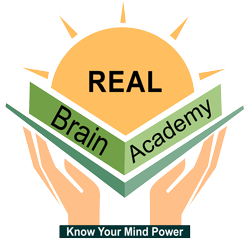DMIT REPORT
My Quotients
Awareness regarding different types of quotients helps the kids develop their personality as a whole. Most of us are aware only of IQ (Intelligence Quotient) but developing other quotients is equally important to grow in life.
EQ – Emotional Quotient
Emotional Quotient, also known as Emotional Intelligence, refers to the ability to understand your emotions and positively use them to stay happy, relieve stress, communicate effectively, defuse conflicts, and overcome daily life challenges in a precise manner.
It also helps you build and maintain long-standing relationships with people, achieve personal, academic, and professional goals, make informed decisions, and above all, enables you to connect with your feelings.
Ability to understand and manage self’s and other’s emotions
Connect with people & self
Emotion Management, Leadership Skills
Directly proportional to your Managerial skills
AQ Adversity Quotient
The Emotional Quotient is the ability to handle one’s feelings, whereas the Adversity Quotient is the ability to handle adversities in your personal and professional life.
Kids with high AQ tend to have an active approach toward solving day-to-day problems and react positively in the face of adversity. Also, they can perceive their experiences constructively, paired with a knack for gaining other’s positive attention.
AQ is considered the most sought-after characteristic in many industries because people equipped with this type of intelligence are known for persistence, self-sufficiency, and tenacity.
Ability to handle tough situations
Pain taking capacity
Tough mind set
Never give up attitude
Situation fighter
High energy level
CQ Creative Quotient
Creativity is the need of the hour, and it is the primary feature of human intelligence. What keeps humans ahead of AI is creativity. Only creativity, nothing else.
Creativity is all about combining things, ideas, techniques, and approaches differently and innovatively. Kids with creative minds can do wonders if they are supervised and trained well in the early days.
Ability to understand music and art
Predictor of your creativity
Painting and Dance abilities
Out of the box thinking
Doing something different better and new
IQ Intelligent Quotient
The Intelligence Quotient measures a person’s reasoning ability. It tells us how well can a person use information and logic to solve questions or make predictions. A set of tests are used to assess the short-term and the long-term memory of the person. The measure of IQ also tells us how quickly can a person solve puzzles, and recall the information they have heard.
All children are intelligent, but some struggle in their academics because of a weakness in one of the areas of their intelligence. The IQ tests here play a vital role as they help the parents identify the special skills of their child.
The IQ tests help predict how well people will do in a particular situation like thinking abstractly in science, engineering, or art. IQ tests are designed to assess children at specific ages.
Ability to reason and think
Predictor of academic performance
Ability to apply logic, language, and grammar
High IQ doesn’t mean more intelligent/vice-versa
